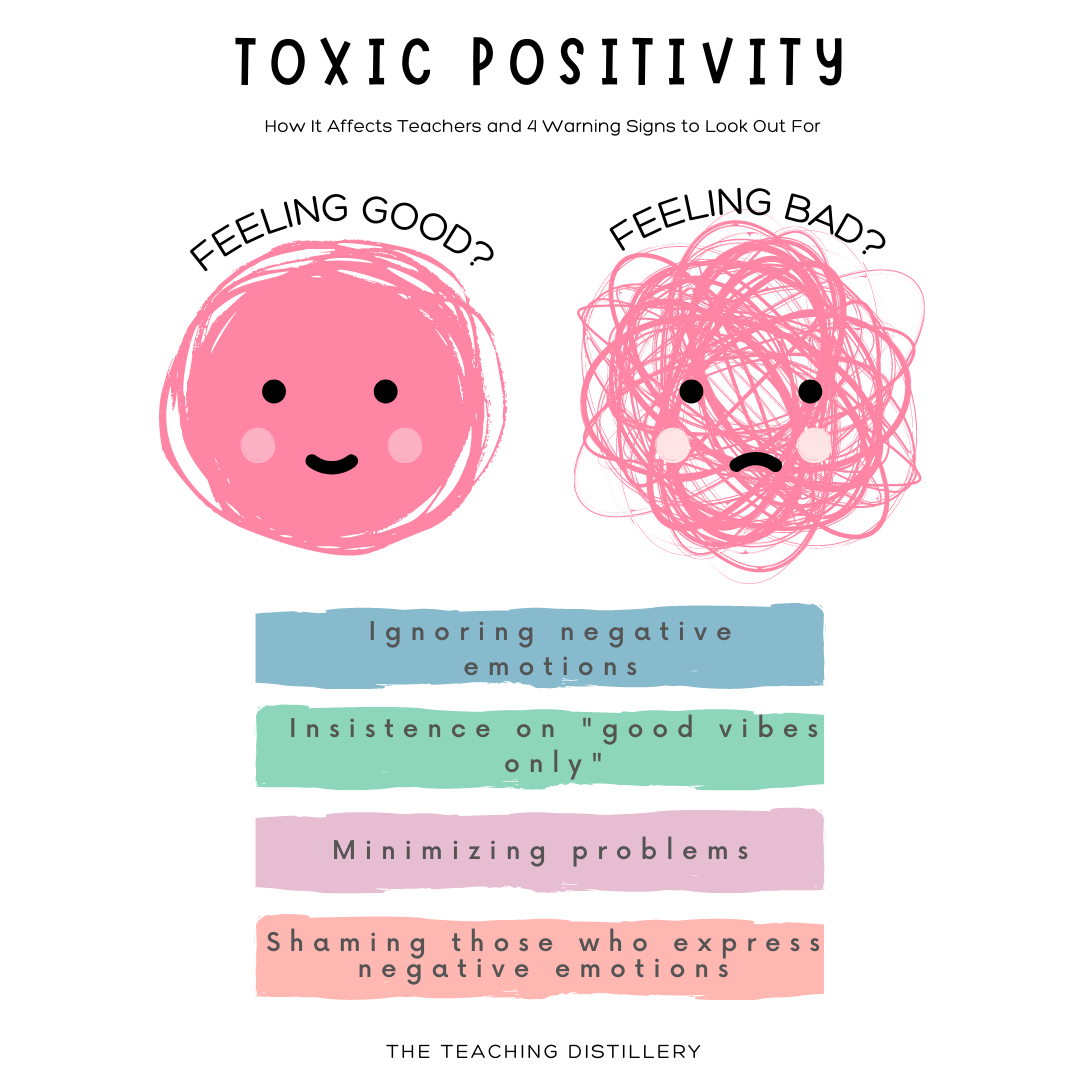Toxic Positivity in Schools: How It Affects Teachers and 4 Warning Signs to Look Out For
Toxic positivity is the belief that one should maintain a positive attitude at all times, even in the face of adversity. While positivity can be helpful in some situations, toxic positivity can be harmful and have negative effects, particularly on teachers.
Teachers are often under significant pressure to maintain a positive attitude, even when faced with challenges such as low pay, lack of resources, or difficult students. Toxic positivity can create an environment where teachers feel unable to express their true feelings, leading to increased stress and burnout.
When teachers are constantly expected to be positive, it can also lead to feelings of guilt or shame when they struggle or have negative emotions. This can create a cycle of self-doubt and undermine their confidence in their ability to do their job effectively.
Moreover, toxic positivity can also impact the mental health of teachers. Suppressing negative emotions and forcing oneself to be positive all the time can cause anxiety, depression, and other mental health issues. It can also make it difficult for teachers to seek help when they need it, as they feel they must present a perfect, positive image to their colleagues and students.
Think your school may be suffering from toxic positivity? Here are four surefire signs that toxic positivity may have taken over your school:
1. Ignoring negative emotions: When people in your school dismiss or ignore negative emotions, such as anger, frustration, or sadness, it can be a sign that toxic positivity has taken hold. While it's important to maintain a positive atmosphere, it's also essential to acknowledge and validate negative emotions as part of the human experience.
2. Insistence on "good vibes only": If your school has a culture that values positivity above all else, it can be a sign that toxic positivity has taken hold. When people are pressured to always present a positive outlook, they may feel like they can't express negative emotions or experiences, which can be damaging to their mental health.
3. Minimizing problems: When people in your school minimize or dismiss problems, it can be a sign that toxic positivity has taken over. Ignoring problems and pretending they don't exist can prevent people from finding solutions and addressing issues that may be affecting the school community.
4. Shaming those who express negative emotions: If people in your school are shamed or made to feel guilty for expressing negative emotions or experiences, it's a sign that toxic positivity has taken hold. People should feel comfortable expressing their emotions without fear of judgment or shame.
Bottom line: while positivity can be helpful, toxic positivity can have harmful effects on teachers. It is essential to create a culture where teachers can express their true emotions, seek help when they need it, and have the support and resources they need to do their job effectively.
